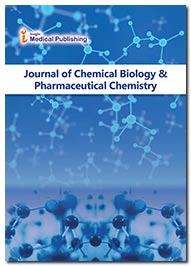Abstract
PGP Activities of Halophilic and Thermophilic Actinobacteria Derived From Algerian Ecosystem and Inoculation Effects on Triticum durum
under rainfed conditions, on the high plateaus, where drought represents a major limitation to crop production. Yield gap between irrigated and rainfed trials indicated that gain yield reduction owing to water deficit ranged from 24 to 80%, depending on rainfall amount and distribution patterns. In addition, salinity stress, which induces both ionic, osmotic and oxidative damages, impairs plant growth and causes severe reductions in cropyield.
To achieve the salt tolerance, damages must be
firstly prohibited or all eviated; secondly, homeostatic conditions should be recovered in the new stressful condition; and finally, the growth must restart, although at al ower rate.
The use of efficient micro-organisms like plant growth-pro-moting rhizobacteria (PGPR) is helpful in boosting and improving sustainable agriculture and environmental stability.
Currently, soil salinity is one of the major concerns in agriculture that limits water absorption and induces accumulation of toxic ions in the different
plants’ organs. The application of halotolerant and thermophilic plant-growth-
promoting (PGPB) actinobacteria can be a valid tool to reduce the harmful effects of saline stress and to improve crop productivity.
PGPR can promote growth via different mechanisms including phytohormones production (e.g. auxin, cytokinin, ethylene and gibberellins), nitrogen fixation, nutrient mobilization and siderophore production. PGPR can induce salinity stress tolerance through the modulation of physiological and biochemical process. They can also induce systemic resistance.
The aim of the present work was to select actinomycete strains with plant-growth-promoting capacities, and to determine their effects on the growth of Triticum durum. Actinomycete isolates were firstly screened through several in vitro plant-growth-promoting (PGP) traits (i.e., phosphate solubilization ability, production of indole-3-acetic acid, hydrocyanic acid, and ammonia, nitrogen fixation, growth at different temperatures and NaCl concentration, antifungal activities and several enzymatic activities). Strains with interesting traits were investigated for their biostimulant effects on Triticum durum.
Author(s): Karima Loucif
Abstract | PDF
Share This Article
Google Scholar citation report
Citations : 21
Abstracted/Indexed in
- Google Scholar
Open Access Journals
- Aquaculture & Veterinary Science
- Chemistry & Chemical Sciences
- Clinical Sciences
- Engineering
- General Science
- Genetics & Molecular Biology
- Health Care & Nursing
- Immunology & Microbiology
- Materials Science
- Mathematics & Physics
- Medical Sciences
- Neurology & Psychiatry
- Oncology & Cancer Science
- Pharmaceutical Sciences

